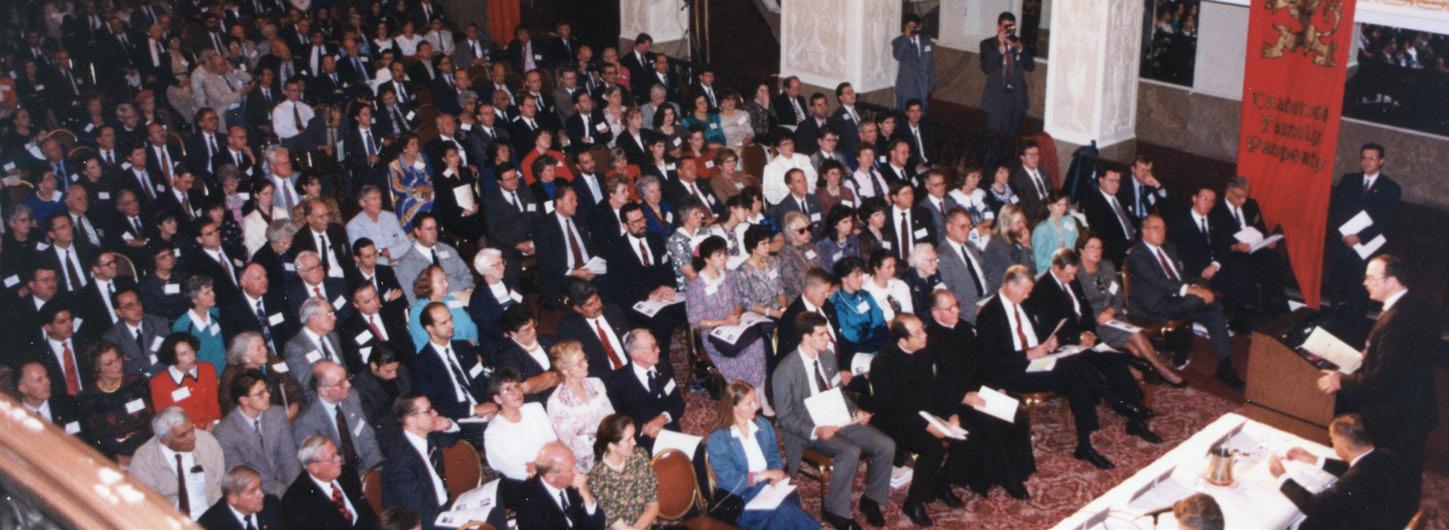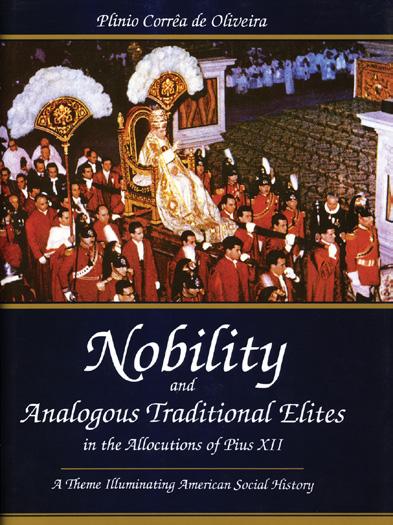
4 minute read
Nobility and Analogous Traditional Elites
BY JENIFER SEGERSTROM
Many people, influenced by the worn-out egalitarian ideas of the French Revolution, view the nobility as a meaningless, even if beautiful, remnant of bygone days.
Such was not the perspective of Pope Pius XII. In his powerful and moving addresses to the patricians and nobles of Rome, he describes the nobility’s important role in contemporary society. He explains its mission of leadership, which it cannot neglect even when deprived of wealth.
Many nations—including the United States—forbid the creation of a titled nobility. Nonetheless, they have traditional, aristocratic elites. These analogous elites are also called to guide society and assume responsibilities for the common good.
With these thoughts in mind, Professor Plinio Corrêa de Oliveira challenged the egalitarian underpinnings of the modern culture war in his last book, Nobility and Analogous Traditional Elites in the Allocutions of Pius XII—A Theme Illuminating American Social History.
On September 28, 1993, the American Society for the Defense of Tradition, Family and Property (TFP) hosted an international seminar at the historic Mayflower Hotel in Washington, D.C. for the launching of the American edition. Held under the high patronage of Her Imperial and Royal Highness Archduchess Monica of Austria, Duchess of Santangelo, and her fatherin-law, His Excellency the late Duke of Maqueda, the event brought together nearly 1,000 people from across the globe and from the most varied walks of life.

The seminar consisted of a series of panels, with distinguished speakers addressing a variety of topics covered in the book’s pages. The first panel, “The Liberal Establishment: a Failed Pseudo-Elite,” emphasized the crucial distinction between authentic and antithetical elites. The next panel, “The Great Republic: An Aristocratic Nation within a Democratic State,” analyzed the American paradox.
The seminar concluded with the panel, “Uncommon Valor as a Common Virtue: Our Military Traditions,” which was comprised entirely of patriots and war heroes and focused on the role of fighting men to be leaders in society, on and off the battlefield.
Though the author was unable to be present for the event, Professor Corrêa de Oliveira’s prepared remarks were delivered, the final words echoed in the hearts of all in attendance:
“The great foundation, indeed the greatest foundation, of Christian civilization, is that each and every soul cultivates a generous love that embraces the Holy Cross of Our Lord Jesus Christ.”
The Nobility campaign continued for the promotion of the book and the principles contained therein. An important milestone was reached on August 25, 2010, the feast of King Saint Louis IX, with the launching of Nobility.org, a web site to promote and introduce historical and contemporary examples of the need for social inequalities, true elites, and heroic leadership.
Since the web site’s launch, its readership has steadily grown. Today, its popular e-mail newsletter, sent twice weekly, now includes more than 8,871 subscribers worldwide.
The web site provides a sample and endorsements of the book, where to buy the book, and in what language. The Nobility Book is currently available in six different languages.
Of the many features the site has incorporated over the years, one of the most notable continues to be Short Stories on Honor, Chivalry, and the World of Nobility. The lives of martyrs and saints, writings of Professor Plinio Corrêa de Oliveira, and various tales of military heroes, past and present, contribute to an impressive resource for the enrichment of the mind and elevation of the soul.
While the state of contemporary society accelerates its decline, the principles of true nobility continue to inspire men of goodwill to strive for excellence and the practice of heroic virtue, which, with the grace of God, will lay the foundations for a return to an authentic Christian social order. ■










